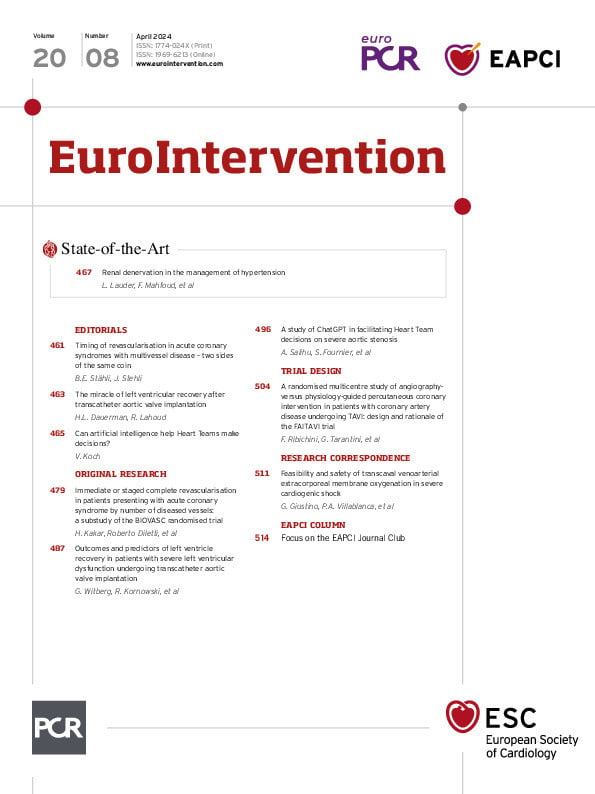Among patients with refractory cardiogenic shock (CS), venoarterial extracorporeal membrane oxygenation (VA-ECMO) provides complete cardiocirculatory support; however, it is associated with high rates of vascular and bleeding complications and peripheral limb ischaemia1. Transcaval (TC) aortic access is a percutaneous technique to deliver large-bore catheter devices from a femoral vein into the abdominal aorta in patients with inadequate peripheral arterial access2. In the setting of CS, TC access may enable VA-ECMO in patients with diseased iliofemoral arteries that are unsuitable for accommodating arterial cannulas. To date, the use of TC access for VA-ECMO is limited to only single case reports and has not been previously investigated3. Here we report the in-hospital outcomes of the largest case series to date of TC-VA-ECMO.
A total of 22 consecutive patients who were in refractory CS but whose peripheral arterial access was unsuitable underwent VA-ECMO cannulation via TC access between 2018 and 2023 at a large tertiary shock centre. Our technique for TC-VA-ECMO without the use of preplanning contrast computed tomography (CT) has been previously described3. Left ventricular (LV) unloading, when...
Sign up for free!
Join us for free and access thousands of articles from EuroIntervention, as well as presentations, videos, cases from PCRonline.com




